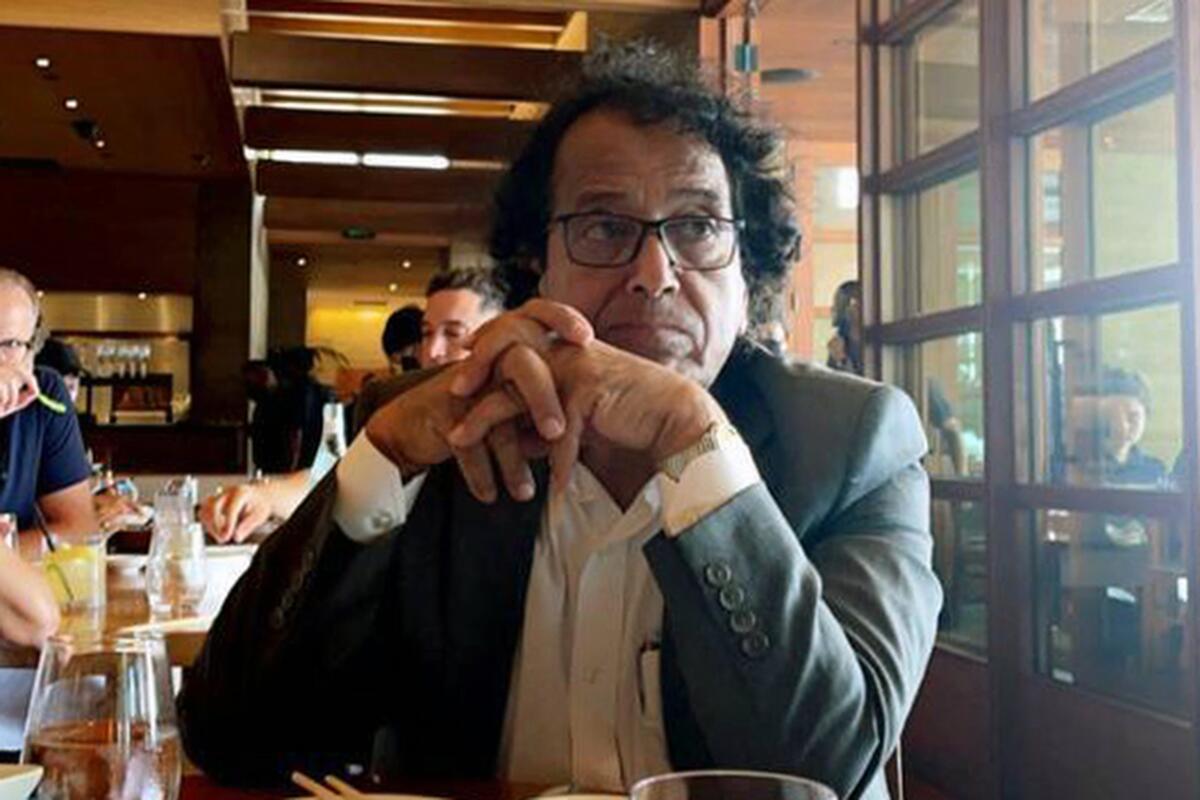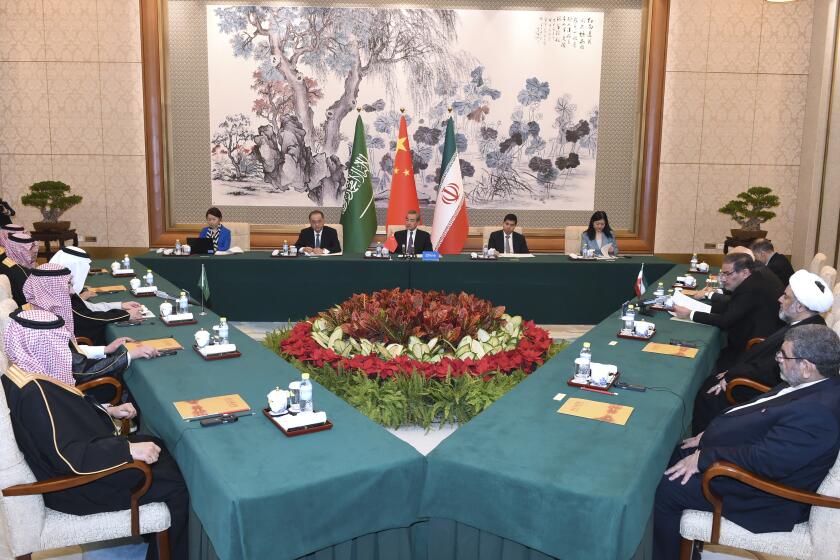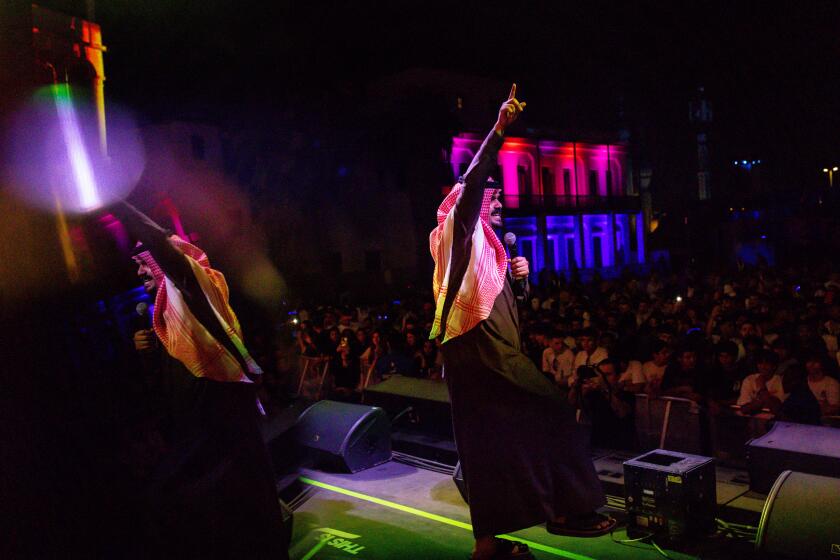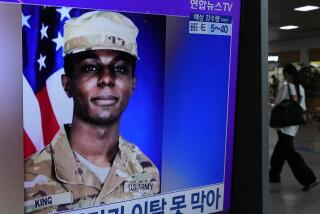Saudi Arabia frees American imprisoned over tweets critical of the crown prince

- Share via
WASHINGTON — Saudi Arabia has freed a 72-year-old U.S. citizen whom it had imprisoned for more than a year over old tweets critical of the kingdom’s crown prince, the man’s son said.
Neither Saudi nor U.S. officials immediately confirmed the release Monday of Saad Almadi, a dual U.S.-Saudi citizen who, until his imprisonment in Saudi Arabia, was a longtime retiree in Florida. There had been word since last week of progress toward Almadi’s release.
Almadi on Monday night was at home with family members who live in Riyadh, the Saudi capital, said his son, Ibrahim Almadi, speaking from the U.S. Saudi officials dropped all charges against the elder Almadi, Ibrahim Almadi and advocates familiar with the case said. But it was not immediately clear whether the kingdom would lift a travel ban it had imposed to follow the prison sentence and whether the elder Almadi can return to the United States.
The Florida man’s imprisonment over old tweets had been one of several alleged human rights abuses that had soured relations between Crown Prince Mohammed bin Salman and President Biden. That included Saudi officials’ killing of U.S.-based journalist Jamal Khashoggi inside the Saudi Consulate in Istanbul in 2018, and prison sentences and travel bans that Saudi Arabia has imposed on rights advocates and perceived rivals and critics of the powerful crown prince.
Both Mohammed and the Biden administration recently have taken steps toward restoring better relations. The two countries are partners in a decades-old security arrangement in which the U.S. provides security for Saudi Arabia and the oil-rich kingdom keeps global markets supplied with oil.
Saudi Arabia had sentenced Almadi last year to 16 years in prison, saying his critical tweets about how the kingdom was being governed amounted to terrorist acts.
The renewal of ties between bitter rivals Saudi Arabia and Iran, brokered by China, heralds the shifting geopolitics in the Middle East.
As U.S. officials worked to win his release, and after Biden traveled to Saudi Arabia in the summer in an attempt to improve relations with the oil-rich nation, a Saudi appeals court increased Almadi’s prison sentence to 19 years.
A retired project manager in the U.S., Almadi was arrested in 2021 when he arrived for what was to have been a two-week visit to see family in the kingdom. Once in custody, he was confronted by Saudi authorities with tweets he had posted over several years from his home in Florida, his son says.
Almadi’s tweets included one noting the crown prince’s consolidation of power in the kingdom, another that included a caricature of him and a tweet that remarked on Khashoggi’s killing. U.S. intelligence officials had earlier concluded that the crown prince authorized the hit team that killed Khashoggi.
“We are relieved that Saad Almadi has been released, but he should have never spent a day behind bars for innocuous tweets,” said Abdullah Alaoudh, Saudi director for the Freedom Initiative, a U.S.-based group that advocates for those it considers unjustly detained in the Middle East.
Young Saudis are letting loose at new state-sponsored social and cultural events even as the government cracks down harshly on political dissent.
Alaoudh urged the U.S. to continue to press for the release of all rights advocates and others detained in Saudi Arabia.
The Freedom Initiative says that at least four U.S. citizens and one permanent resident were detained in Saudi Arabia under travel bans, and that at least one other older U.S. citizen remains imprisoned. Many of the travel bans targeted dual nationals advocating for greater rights in the kingdom, such as Saudi women’s right to drive.
Ibrahim Almadi said that his father had lost a lot of weight in prison and that his health had worsened drastically.
More to Read
Sign up for Essential California
The most important California stories and recommendations in your inbox every morning.
You may occasionally receive promotional content from the Los Angeles Times.












